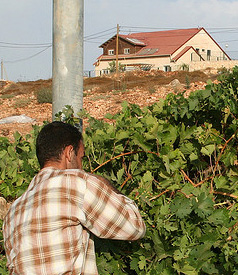 While intensively engaged in illegal settlement expansion, the government of Israel is also seeking to deal with two problems: a global campaign of what it perceives as “delegitimation” – that is, objections to its crimes and withdrawal of participation in them – and a parallel campaign of legitimation of Palestine.
While intensively engaged in illegal settlement expansion, the government of Israel is also seeking to deal with two problems: a global campaign of what it perceives as “delegitimation” – that is, objections to its crimes and withdrawal of participation in them – and a parallel campaign of legitimation of Palestine.
The “delegitimation,” which is progressing rapidly, was carried forward in December by a Human Rights Watch call on the U.S. “to suspend financing to Israel in an amount equivalent to the costs of Israel’s spending in support of settlements,” and to monitor contributions to Israel from tax-exempt U.S. organizations that violate international law, “including prohibitions against discrimination” – which would cast a wide net. Amnesty International had already called for an arms embargo on Israel.
The legitimation process also took a long step forward in December, when Argentina, Bolivia and Brazil recognized the State of Palestine (Gaza and the West Bank), bringing the number of supporting nations to more than 100.
International lawyer John Whitbeck estimates that 80-90 percent of the world’s population live in states that recognize Palestine, while 10-20 percent recognize the Republic of Kosovo. The U.S. recognizes Kosovo but not Palestine. Accordingly, as Whitbeck writes in Counterpunch, media “act as though Kosovo’s independence were an accomplished fact while Palestine’s independence is only an aspiration which can never be realized without Israeli-American consent,” reflecting the normal workings of power in the international arena.





 Amid the immense confusion surrounding the US strikes on Venezuela, the seizure of the president, Nicolás...
Amid the immense confusion surrounding the US strikes on Venezuela, the seizure of the president, Nicolás... On Monday, August 6, 1945, after six months of intense firebombing of 67 other Japanese cities,...
On Monday, August 6, 1945, after six months of intense firebombing of 67 other Japanese cities,... Later this month, on the holiday of Purim, Jewish people will dress in silly costumes, eat...
Later this month, on the holiday of Purim, Jewish people will dress in silly costumes, eat...






























